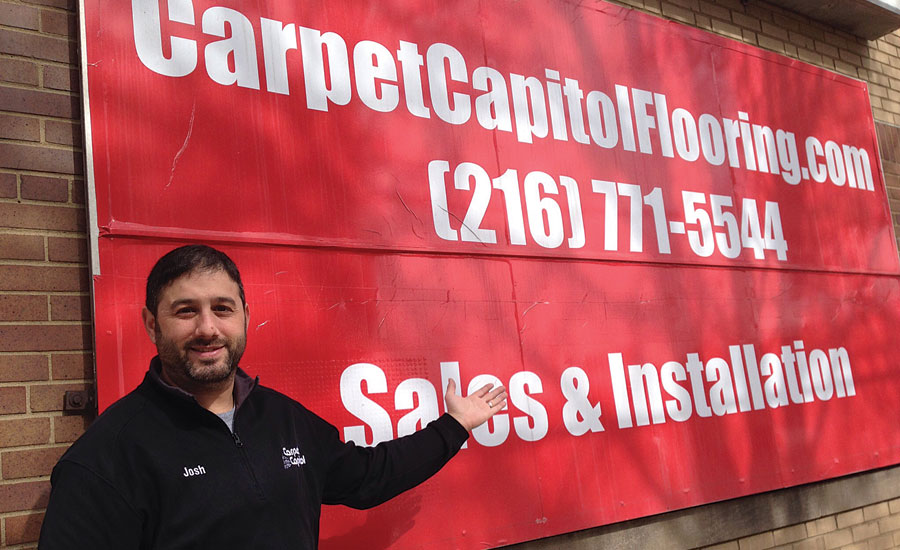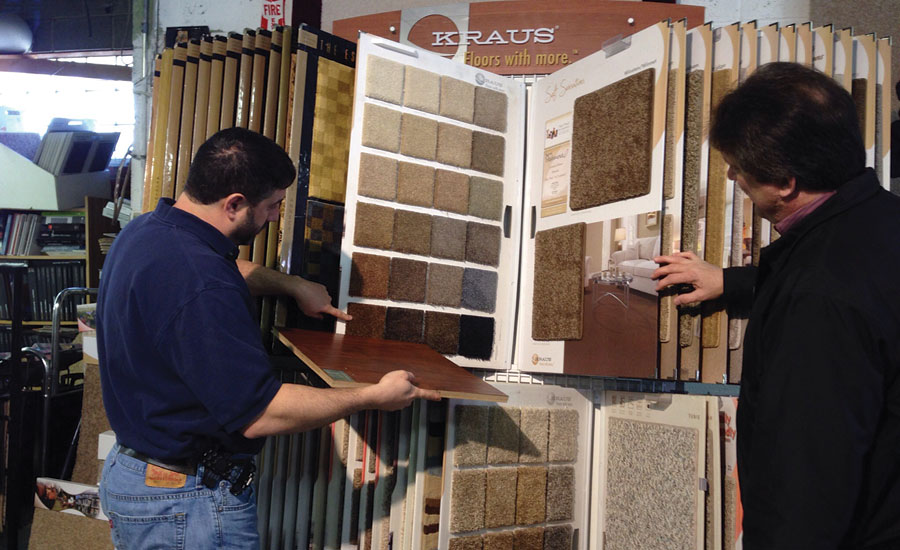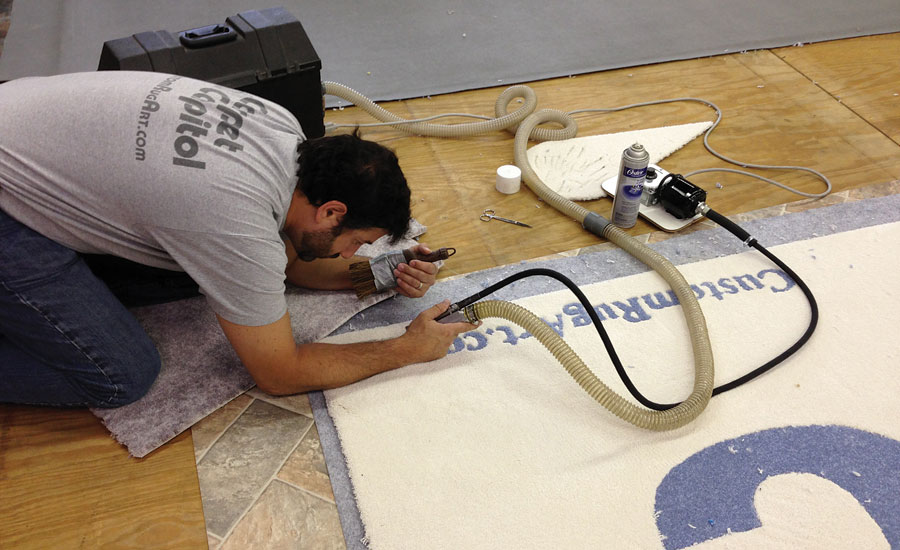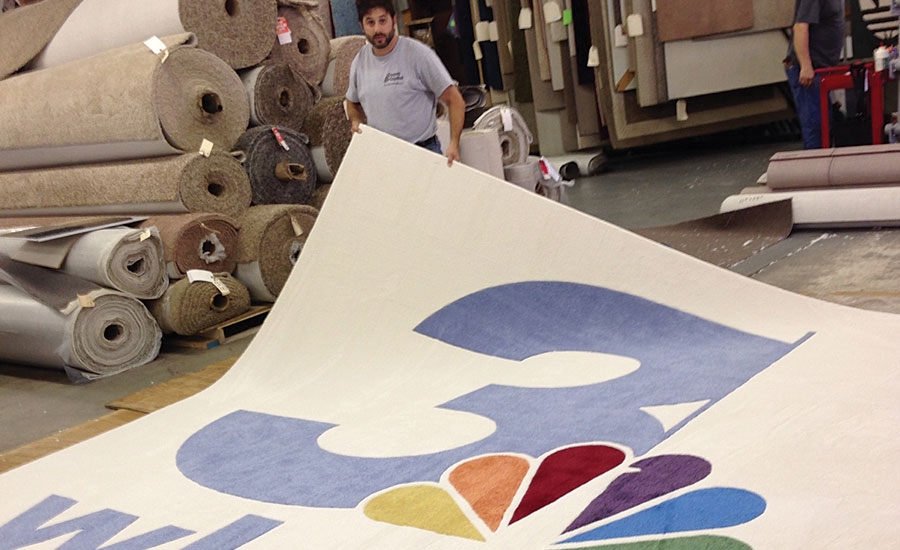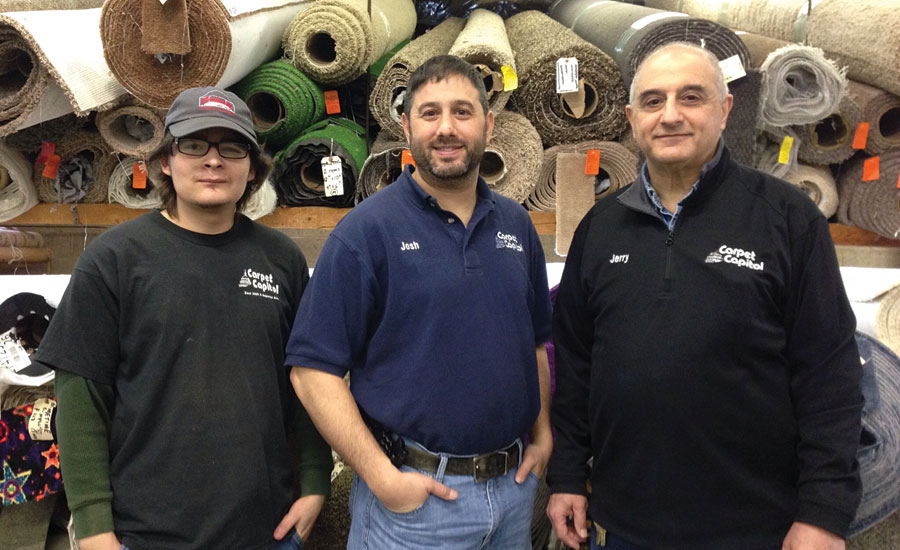Cleveland’s Carpet Capitol Gets Creative: Stays Small to Grow

Josh Cohen is the fourth generation family member to run Carpet Capitol, which has called Cleveland its home for more than a century.

A key reason why Carpet Capitol has been in business for more than 100 years is its focus on customer service, as each customer is treated with professional help to ensure they are getting the products that meet both their design and lifestyle preferences.

Since he was a teenager, Josh Cohen has had a love of creating custom rugs. Today, he is an accomplished artist with a global client base. The niche offering is also something the company has to differentiate itself from competitors.

Since he was a teenager, Josh Cohen has had a love of creating custom rugs. Today, he is an accomplished artist with a global client base. The niche offering is also something the company has to differentiate itself from competitors.

Josh Cohen, center, with his dad, Jerry, part of Carpet Capitol’s third generation of ownership, and Justin Bard.

Even at age 3, Josh Cohen was involved in the family business as he is seen in this 1976 ad celebrating the company’s 67th anniversary.






After more than a century in business, one of Carpet Capitol’s key strengths has been its ability to maintain focus amidst all the turbulence of depressions and recessions alike.
In the beginning, it was the sheer determination and drive that allowed newly emigrated Abraham “Abe” Bickoff to take his expertise as a master carpenter and meld it with the needs of the community he settled in to become a wood flooring installer and later found his own flooring business.
Later it was the strength of his son, Frank Bickoff, to keep his resolve after serving his country and losing his brother in World War II, and then build the family business to four locations across northern Ohio. With the post war housing boom in the area, he was able to expand the business beyond hard surfaces to include broadloom and serviced the region from the company’s workrooms and main warehouse in the same downtown location it still owns.
The third generation of the family to run the business—Frank’s son, David Bickoff, and son-in-law, Jerry Cohen—successfully navigated the company through the heyday of the ’80s and the recession of the ’90s. Since David’s passing in the mid-’90s, Jerry charted the company’s course to get it through the housing debacle of the last decade.
Today, Jerry’s son, Josh Cohen, and the family’s fourth generation, is steadfast in his conviction to keep the company strong by understanding its strengths. The younger Cohen grew up in the showroom “doing homework on the sales counter,” and does everything from sales to installation. In fact, he has taken his skills as an installer and developed them to create custom art for customers and artists alike.
“From a business perspective,” he explains, “retail margins are as good as you can get. Being able to create custom art puts you in a different category—you can charge whatever for art pieces.”
Cohen took his first inspiration to create custom rugs as a teenager watching an installer make a bordered rug on the company’s warehouse floor. When the time came and a customer asked him to “put a couple of shapes” on a rug for a special event, he rose to the challenge.
The rarefied market segment has few players with the skill set as there are not many artisans from whom to learn, Cohen notes. Luckily there was one such artisan/installer in his area, Paul Arida, who was there for him to call upon. Still, even finding the tools to create the rugs was a challenge, but his father’s technical acumen and established networks helped him find the tools necessary to do the work.
“Gradually,” he says, “the requests started getting a little more intricate and I wanted to know if it was doable. It really was a lot of trial and error.”
As he developed a portfolio, Cohen even garnered the attention of traditional artists in other mediums. Most recently, artist E.D. Taylor had him recreate designs from her pieces to showcase alongside her own exhibition at the Galleries at Cleveland State University.
Despite the ability to “name his price” for the artistic work, Cohen has been careful to not price himself out of the market, thereby growing that new segment of the business to where he now has a global client base.
“I enjoy using both lobes of the brain,” he jokes. “There was always a creative guy trying to get out [alongside the business one]. I tried to paint, do wood work, etc., and never realized the carpet I was surrounded with would be my medium.”
Creative element aside, Cohen still manages to run a strong flooring business with clients all over northern Ohio. Josh shares his father’s vision that less is more noting “you can manage better work, and have less problems and headaches by staying small.
“Instead of moving to the suburbs like our competition did decades ago,” he continues, “we kind of made a promise to stay downtown in an urban setting.”
That commitment made by Jerry, who is still very active in the company, has paid off as Cleveland is currently undergoing a bit of a renaissance.
“We’re well positioned as the city is moving more toward technology and gentrification,” Cohen explains.
While custom rugs are a very narrow niche, he says the backbone of the business is still referral and word of mouth. Carpet Capitol also benefits from owning its property, keeping overhead low, and running a clean, honest shop.
“During the recession,” he points out, “when guys with expensive rent were drowning, we hunkered down and saw it through. There’s something to be said for keeping your word and keeping it simple.”
After more than a century in business, the company still sees consistent growth and is projecting another 5% to 7% sales increase this year.
“It may not sound like much,” Cohen says, “but we couldn’t be more happy being able to show up to work every day, answer everyone’s questions and do our best with every customer.”
To help ensure its growth, Carpet Capitol does have an Internet presence, but he points out “we sell fabric. I don’t really know an effective way to do that through the Internet. There are those that seem to but they tend to have lots of claims.
“For us,” he adds, “the Internet is a good way to gain visibility and make the introduction. We come up organically because of local searches and the breadth of what we do.”
A stocking dealer with several hundred rolls from which customers can choose, Cohen has found getting customers through the doors is usually all he needs to close the sale as he can have product installed in their homes faster than many non-stocking competitors can even get product in their shops.
Clients have shown their appreciation with positive comments on Yelp! and numerous thank you notes. They appreciate the company’s personalized approach kindred to the ’80s television show Cheers.
“We have always run the business like an old-fashioned hardware store,” he says. “People come in and we get to know their names and answer their questions. We may not always get the sale, but enough homeowners have had enough of that box store service where the person does not work in that aisle. When there’s service involved, that’s where we fit nicely.”
At the company’s core, Cohen notes, “we are working guys through and through. We work and that’s the blessing in and of itself because we have the privilege of having work in an industry we love.”
Looking for a reprint of this article?
From high-res PDFs to custom plaques, order your copy today!









